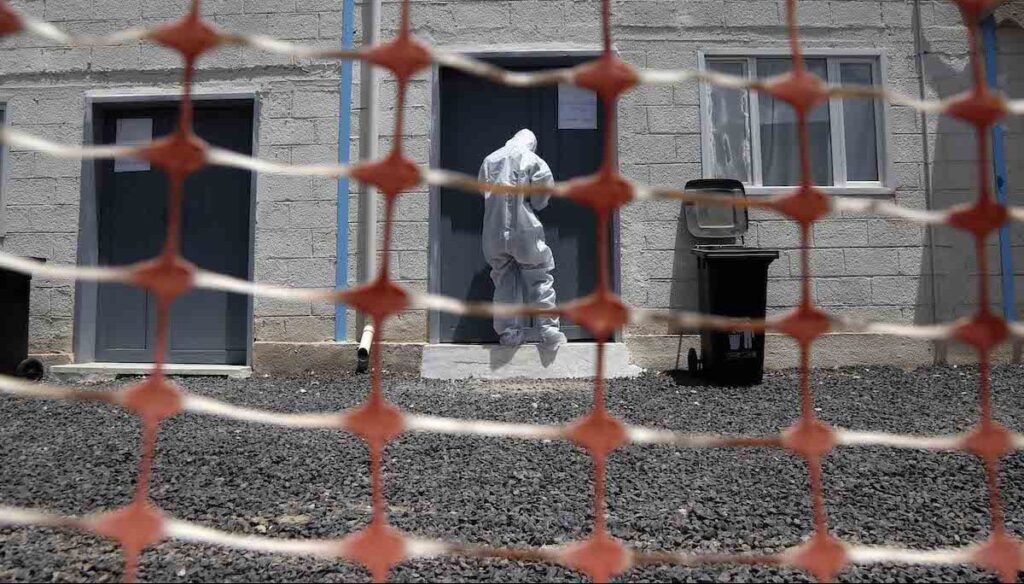Updates & Press
Featured | March 26, 2021
Weekly Humanitarian News Digest – March 26
Author | MedGlobalComms

Each week, we highlight the latest news related to the humanitarian and health crises in our countries of operation: Bangladesh/ Myanmar, Colombia/ Venezuela, Gaza/ Palestinan Territories, Greece, Lebanon, Pakistan, Sudan, Syria, and Yemen. For more frequent updates, make sure to follow us on Facebook, Instagram, and Twitter.
Cover Image: Mohammed Hamoud/Anadolu Agency
Latest News for March 19 – March 26, 2021
Bangladesh/ Myanmar
At least 11 people have died in a fire that broke out in a refugee camp in Cox’s Bazar. More than 10,000 shelters were destroyed, displacing an estimated 45,000 Rohingya refugees. The fire also damaged hospitals, distribution points, and other facilities, impacting services. Around 900,000 Rohingya live in overcrowded camps in Cox’s Bazar that have experienced multiple fires in recent months. (CNN)
Colombia/ Venezuela
Colombia has announced new lockdown restrictions in several cities to combat the rise in new COVID-19 cases. Half of all intensive care units (ICU) in Bogota are filled and less than 30% of ICUs in Medellin are able to take new cases. Vaccination campaigns in the regions bordering Venezuela and Brazil have been prioritized in order to create buffer zones, but the Brazilian variant of COVID-19 is believed to be spreading in Colombia. (Colombia Reports)
Gaza/ Palestinian Territories
Only 4% of households in Gaza and 66% of households in the West Bank have access to safe water. The daily allocation of water per Capita in Palestine is below the internationally recommended rate and continues to decrease. More than 97% of the water extracted from Gaza’s coastal aquifer does not meet WHO standards, leading to the rapid depletion of groundwater reserves. (Middle East Monitor)
Greece
The Greek government is planning to mobilize doctors in the private sector to help the health system manage the COVID-19 crisis. The rapid increase of cases in the country has overwhelmed hospitals and filled ICUs to capacity. The government also plans to distribute free self-testing kits to reduce pressure on the health system. (Voice of America)
Lebanon
Lebanon received 33,600 doses of AstraZeneca vaccine through the COVAX program on March 24. A second batch of 130,000 doses is expected to arrive in early April as part of the COVAX program’s goal of vaccinating 20% of the population, including refugees and migrants. Lebanon has also secured vaccines through the private sector. (ReliefWeb)
Pakistan
Pakistan’s prime minister, Imran Khan, tested positive for COVID-19 two days after receiving his first dose of COVID-19 vaccine. Though he reportedly has a mild case, health officials are concerned that the news will deter people from getting vaccinated. Vaccine hesitancy is widespread in Pakistan, even among health workers, due to conspiracy theories. Distrust of vaccines from China, which is what Khan is believed to have received, is particularly high. (Reuters)
Pakistan has bought more than one million doses of COVID-19 vaccines from Sinopharm and CanSino Biologics. The doses will be delivered in March and Pakistan is negotiating the purchase of an additional seven million doses. Pakistan previously received one million doses of Sinopharm vaccine donated by China and is still waiting on four million doses of AstraZeneca’s vaccine to be delivered through the COVAX program. (Reuters)
Sudan
Sudan expects to receive 250,000 doses of Sinopharm’s COVID-19 vaccine on Friday. Sudan previously received 828,000 doses of AstraZeneca’s vaccine through the COVAX program. (Reuters)
Syria
A Syrian health official has reported that ICU beds in Damascus for COVID-19 cases are at max capacity. Patients in the capital are now being transferred to other areas for treatment, correlating with a rise in local transmissions. The government has reported 16,776 cases of COVID-19, but the WHO estimates that the actual number of cases is much higher due to limited testing. Syria expects to receive its first batch of COVID-19 vaccines through the COVAX program either at the end of March or sometime in the second quarter of 2021. (Middle East Eye)
Yemen
Yemen’s health and population minister, Qasim Buhaibeh, reported that ICUs in quarantine centers have filled to capacity due to a recent spike in new cases. Health centers lack sufficient ICU equipment and oxygen tubes to treat COVID-19 patients. According to government sources, Yemen has recorded 3,126 cases and 723 deaths. No data is available for areas under the control of Ansar Allah, which includes the majority of Yemen’s population. (Middle East Monitor)
The U.N. estimates that an additional 672,000 people in Yemen will be displaced this year if current levels of violence continue. So far in 2021, at least 834 households have been impacted by armed violence. The conflict is estimated to have killed nearly a quarter of a million people and erased 21 years of human development Yemen. (Norwegian Refugee Council)


